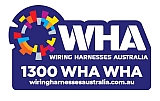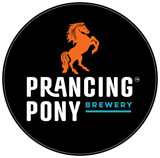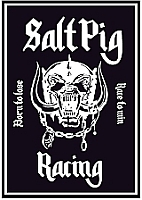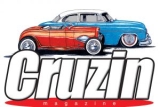Bush Fires
Speed Week is held at Lake Gairdner (a salt lake) in remote outback South Australia usually in late February or March. This is towards the end of the Australian summer and it will be hot and extremely dry and falls during the South Australia Bushfire season, so certain rules will apply. On days of extreme fire danger, a Total Fire Ban will apply to a region of the whole of the State.
Each of the Australian States and Territories in Australia have their own city and bush fire services which respond to fires and provide information on the weather conditions and ratings as they relate to fire and location and severity of current fires. There are links to these below.
When you are at Speed Week you cannot light a wood fire during the Fire Danger Season. All open fires, liquid fuel and gas stoves are banned on Total Fire Ban days as declared by the Country Fire Service (CFS) and broadcast on the radio.
At Speed Week there are 3 evacuation points, 2 on the salt (Start Line and Pits) and another in front of the canteen, refer to the DLRA Fire Evacuation and Emergency Plan [PDF] for their location.
In the event of a bush fire or accident on the road from Iron Knob or Kimba, the South Australian Country Fire Service has requested that the DLRA Fire & Rescue team respond as the nearest CFS station is over 2 hours away. The DLRA Fire & Rescue team are all active CFS members.
When traveling to and from Speed Week make it your business to check for warnings either on the radio or via the interactive maps at least every morning and if you are anywhere near current fires, regularly during the day. If you don't have access to the internet a good way to keep in touch is via a local ABC radio station.
If you're traveling during the bush fire season, you could be affected by a fire. Bush and grass fires often cross roads and highways. Smoke can reduce visibility and roads may also be closed without warning.
Check before you travel
- Fire Danger Ratings and Bush Fire Alerts from the links below or on a smart-phone app
- Weather conditions on the Bureau of Meteorology website.
- How you can call for help.
- Emergency Survival kit is packed, including a working battery operated radio, protective clothing, woolen blankets and water.
- If caravaning or camping read this Caravan and Camping Bush Fire Safety fact sheet or brochure
- If bush-walking read this Bush Fire Safety for Bush-walkers fact sheet or brochure
If you are traveling and caught in a fire
Cars are a very dangerous place to be during a bushfire as they offer very little protection from radiant heat. This is a last resort.
Driving somewhere will take longer than you expect and road conditions can become dangerous. There may be road closures, smoke, fallen trees and embers.
- Call Triple Zero 000
- Park behind a solid structure to block as much heat as you can. If this is not possible, park off the road in a clear area away from trees, scrub and tall grass
- Face the front of your car towards the fire
- Stay in the car below the windows to protect yourself from radiant heat
- Turn off the engine and turn on headlights and hazard lights, if you do leave the engine running, turn the air conditioning on recirculate.
- Close windows and air vents
- Cover yourself with a woolen blanket
- Drink plenty of water
- Cover your mouth with a damp cloth
- Stay down until the sound of the fire has passed, carefully leave the car (it will be hot)
- Call your family and friends to let them know you are safe.
- In case you become separated from loved ones, Red Cross manages Register.Find.Reunite, a national registration and enquiry service. When the service is activated, people can register at www.redcross.org.au or in person at an evacuation or relief centre. You can also use the website if you are unable to contact a loved one who may have been affected.
Fire Danger Ratings
The Bush Fire Danger Ratings give you an indication of the possible consequences of a fire, if one was to start in a particular region. Bush Fire Danger Ratings are based on predicted conditions such as temperature, humidity, wind and the dryness of the landscape. The higher the fire danger rating, the more dangerous the conditions.
- Australian Capital Territory
- New South Wales
- Northern Territory
- Queensland
- South Australia
- Tasmania
- Victoria
Warnings and Incident Maps
These maps locate current fires in each State.
- Australian Capital Territory
- New South Wales
- Northern Territory
- Queensland
- South Australia
- Tasmania
- Western Australia
State Fire Services
| State | Agency | Bush Fire Information Line |
| • Australian Capital Territory | Emergency Services Agency | 13 22 81 |
| • New South Wales | Rural Fire Service | 1800 679 737 |
| • Northern Territory | Fire and Rescue Service | www.lrm.nt.gov.au/corporate/contacts (find the region relevant to you) |
| • Queensland | Rural Fire Service | ruralfire.qld.gov.au (no general information line available) |
| • South Australia | Country Fire Service | 1300 362 361 |
| • Tasmania | Tasmania Fire Service | 1800 000 699 |
| • Victoria | Country Fire Authority | 1800 240 667 |
| • Western Australia | Department of Fire and Emergency Services | 13 3337 |
This page is provided as a service to Speed Week competitors and spectators. You accept all risks and responsibility for losses, damages, costs and other consequences resulting directly or indirectly from using this page and any information or material available from it.
This is the CFS Incident interactive map, you can use your mouse to pan around, or zoom in or out
Learn More ...
Advisories
- Bushfires
- Cleaning of Vehicles
- Dehydration
- Entrants Check List
- Heat Exhaustion / Stroke
- Shade Shelters
- Spectators Check List
- Umbrellas
Learn More...
Entrant Information
- Competitor Check List
- Entry Form
- Online Booking
- Volunteers Register
- Technical Inspection
- B-1 Car Inspection & Classification Form
- B-2 Motorcycle Inspection & Classification Form
- Race Car Engineering
- Rulebook
- Guidelines for Vehicle Numbering
- Membership Form
- Cleaning your Vehicle
- Frequently Asked Questions
New Entrants
Additional Recommended Reading
- Track Layout
- Starters Instructions
- Push Cars
- How to get to Lake Gairdner
- Lake Gairdner
- What to take
- Club Rules
- Dehydration
Support the DLRA
- Promote your business by advertizing in the DLRA Newsletter
- Sponsors Information










